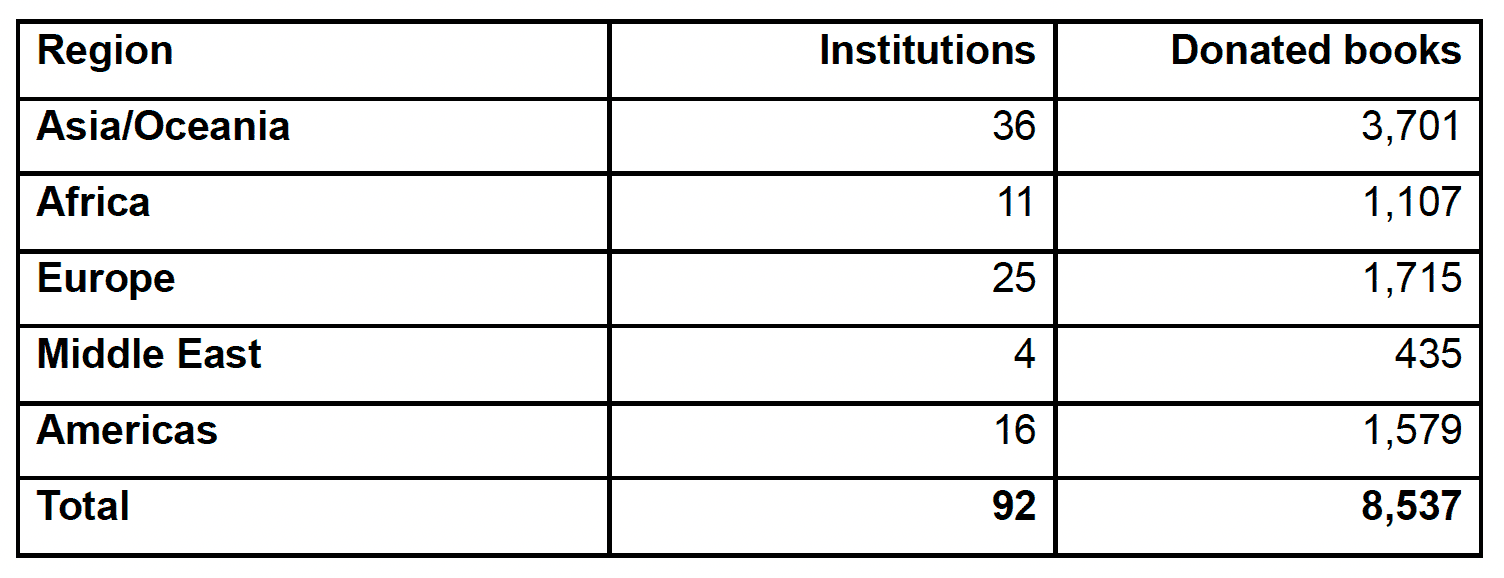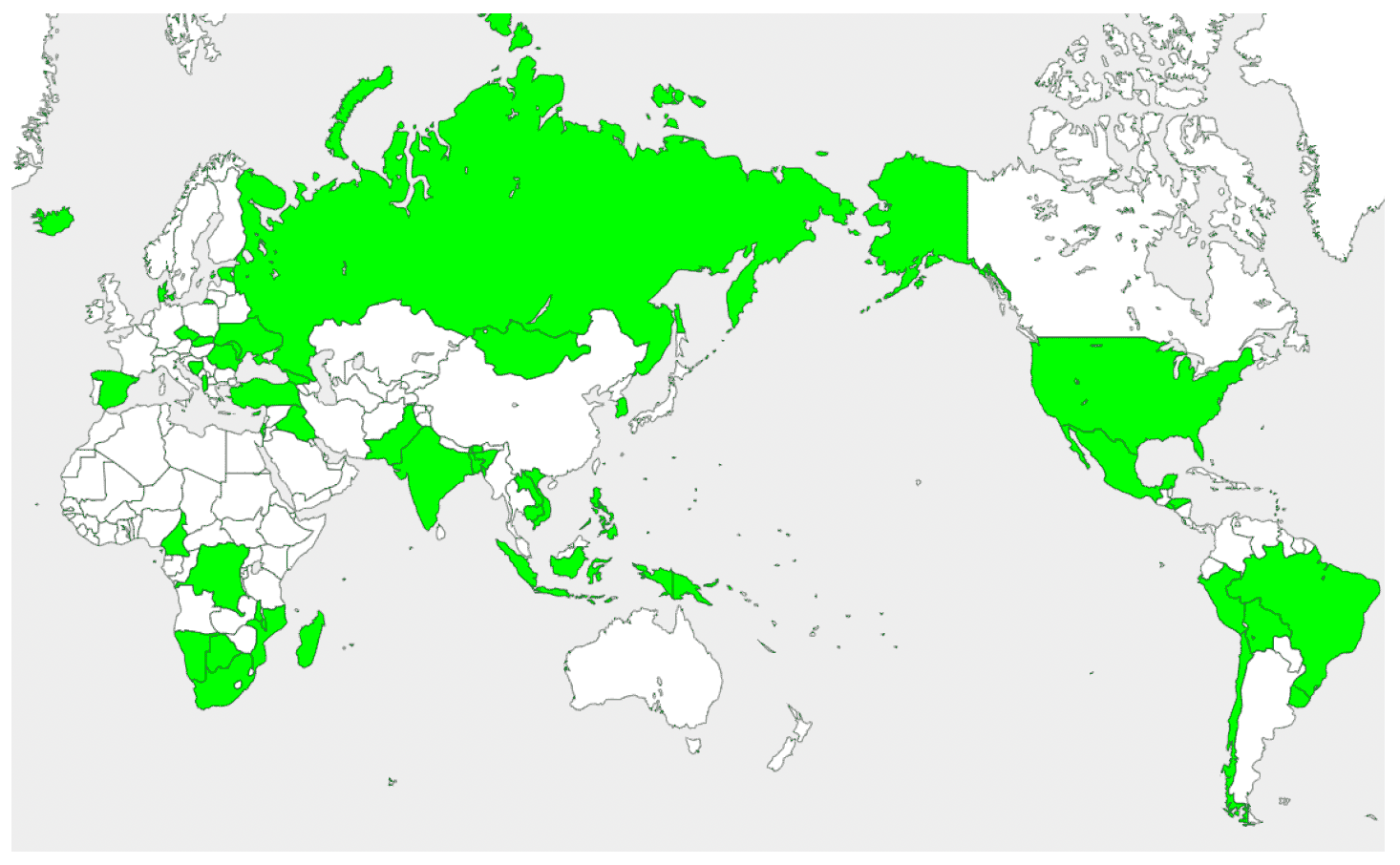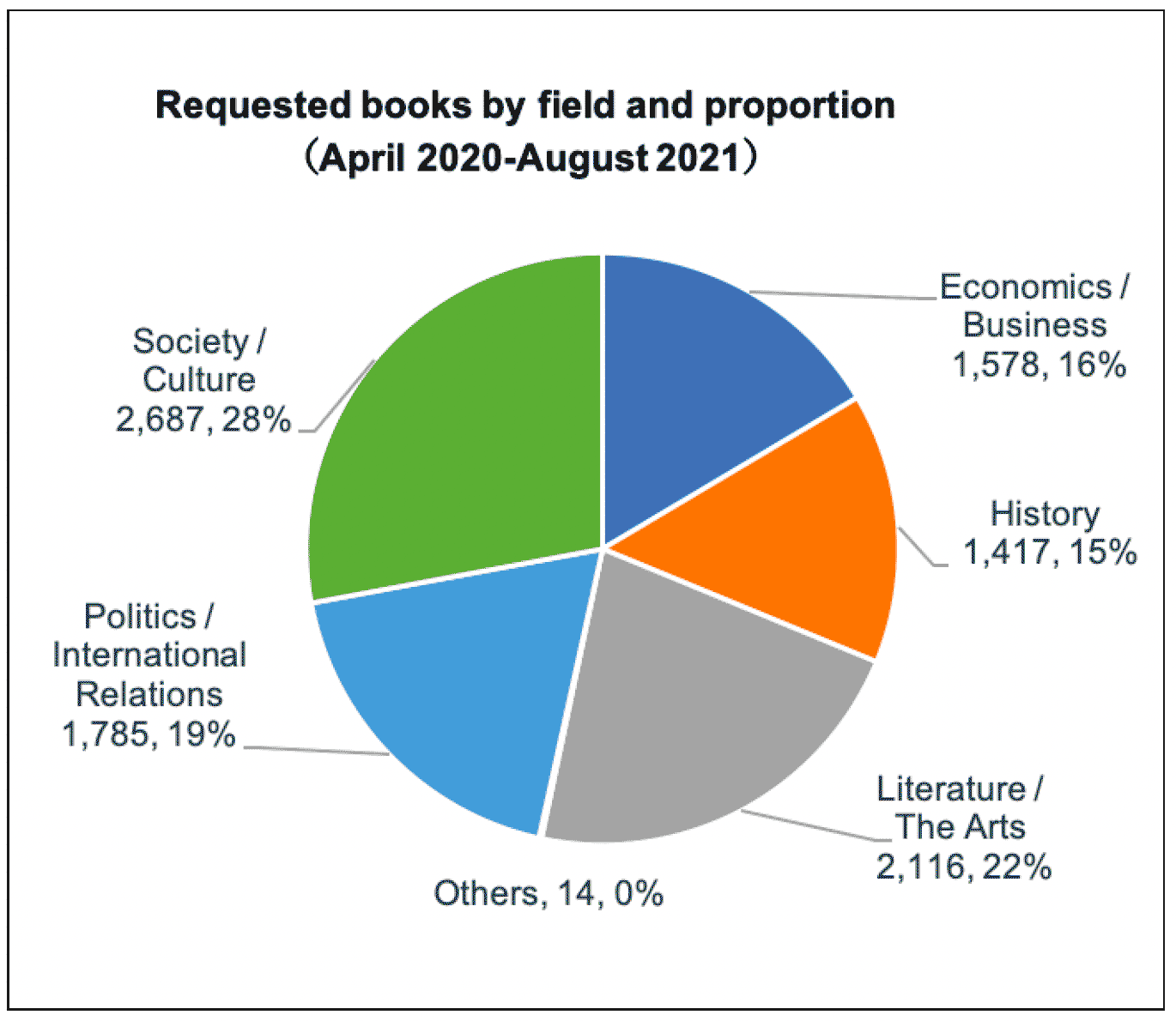News


Report on Book Donations (April 2020-August 2021)
2021.09.15
◆ Donation record
The READ JAPAN PROJECT donated 8,537 books to 92 institutions between April 2020 and August 2021. The biggest recipient by region was Asia/Oceania, where 36 institutions received a total of 3,701 books.
Since its launch in 2008, the READ JAPAN PROJECT has donated a total of 74,313 books to 1,130 institutions in 138 countries/territories.
Number of recipient institutions and donated books (April 2020-August 2021)

Geographical distribution of recipient institutions (April 2020-August 2021)

◆ Fields of books requested
The READ JAPAN PROJECT was able to provide books across a wide range of requested fields. The area with the most requests was society/culture. The second-most requests were for books on literature and the arts. Those two areas together accounted for roughly half the total. The rest were divided among politics, economics and history.

◆Reasons for applying for a donation
Many applicants said they wanted to enrich their Japan-related library materials.
Many of the applicants were universities. The schools not only had Japanese language and studies departments, they also taught international relations, Asian studies, business and economics, as well as the liberal arts. Some universities had staff who had studied in Japan. Others were located where the Japan International Cooperation Agency (JICA) had provided technical cooperation and Japanese education as part of its developmental assistance projects. Moreover, given that the books cover a wide range of fields in English, some universities saw the donation as an opportunity to expand their efforts to explore global diversity and different cultures.
In addition, we received much interest from institutions dedicated to fostering international civil servants, think tanks, Japanese culture centers and communities of people of Japanese descent. There was interest from public libraries in areas of economic activity thanks to Japanese tourists and others.
Some applicant institutions were in countries or regions where very few books on Japan are available, where it is difficult to obtain useful books, where information technology is underdeveloped, where people find it difficult to visit Japan due to geographical or economic reasons, and where there are no Japan-related research or cultural facilities. Thus, we received many avid requests for books on Japan from both applicant and recommending institutions.
◆Applications and book donations amid the Covid-19 pandemic
The global Covid-19 pandemic, which began in early 2020, has seriously affected the READ JAPAN PROJECT in various ways. For example, some applicant institutions such as universities and libraries have closed. Staff at some recommending institutions such as embassies and other overseas diplomatic establishments have returned to Japan. And there have been delays in book deliveries. These difficulties continue. Nevertheless, the PROJECT received many applications from universities and libraries in various countries that wished to receive book donations from Japan. As a result, we have been able to donate over 8,500 books to 92 institutions.
One of the universities that applied for books employs a professor who studied in Japan on a grant from Japan’s Ministry of Education, Culture, Sports, Science and Technology. The professor expressed the wish that graduate students majoring in Japanese studies will use the donated books. Another applicant was a scholarship institution affiliated with a public interest incorporated foundation. There were also universities that have exchange programs with Japanese universities. Thus, it can be said the PROJECT is a good example of how multiple ventures to promote an understanding of Japan, both public and private, have steadily grown and their impact has been felt around the world.
Some applicant institutions had to overcome the disadvantages of weak infrastructure. They were forced to retype their application forms again and again due to sudden power outages. Many applications came from countries and regions that lack basic infrastructure such as electricity and the Internet. Other areas lack educational institutions or cultural facilities related to the Japanese language or Japan. This unfortunate situation reminds us that our book donations are a valuable source of information for people in those places who are seeking to learn about Japan.


